Redbook. Always loved her voice.
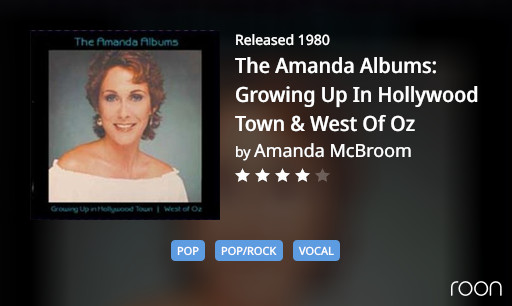
Redbook. Always loved her voice.

48kHz 24bit, MQA 192kHz

Josquin des Prez ; c. 1450/1455 – 27 August 1521 (this year 500 years † ), French composer. “He is the master of the notes. They must do as he wills; as for the other composers, they have to do as the notes will.”
Great choice. It’s been sitting in my favourite list on Qobuz since its release last week waiting for me to get round to it. It also represents a move for Stile Antico from Harmonia Mundi to Decca.
I was fortunate to see Stile Antico live a couple of years ago paired with the viol consort Fretwork. Aside from anything else it was an object lesson on what being in tune really means. Impeccable.
@PAR You might like this one too:

New from Sound Liaison. Single mic, DXD. Superb.
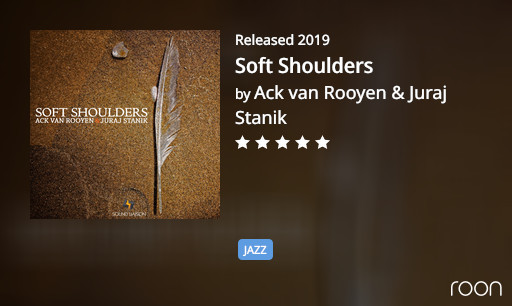


This got raves from quite a few critics. And while I like her voice a lot, the album seems significantly “over-produced” and formulaic. The cover of Today is not bad, but In Your Eyes was quite the disappointment. Redbook.
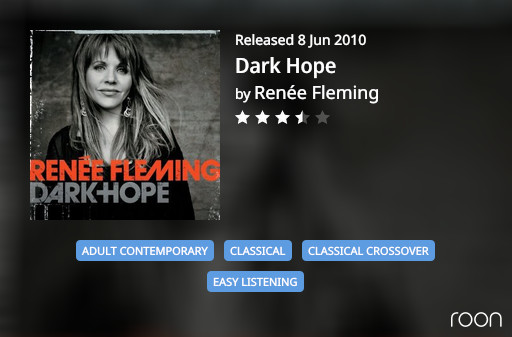
I’m confused. DXD is simply a shorthand term for PCM at 24/353.8. There is nothing special or magical about it. This has been discussed in this community and elsewhere quite often. So, if the original was recorded in DXD, and it’s unfolded through MQA to DXD, how is this “much diluted”?
I’m no fan of MQA, and am disappointed that 2L has gone down its exclusivity path, but here, there seems little harm.
I don’t think I said there is any magic about DXD It’s just a term that is used to denominate 24/352.8kHz or 24/384
The 2L test bench comparison helps to understand why unfolded MQA is diluted.
The original 24/352.8kHz file of “Living” is 470MB in size. That means it contains 470MB worth of information. The MQA file is 52MB in size and is streamed as 24/44.1kHz MQA. This means, the MQA file’s information content is around 11% of the original DXD file.
During playback the MQA file first gets unfolded to 24/96kHz.The second unfold then takes it to 24/352.8kHz. All the information in the resulting 24/352.8kHz file was originally contained in the 24/44.1 MQA file. The difference in size (89%) was “filled in” through some some smart guesswork. But guesswork and “dilution” it remains. That’s why I think there can only be one original.
The “harm” MQA does in my view is that is raises wrong expectations. You cannot faithfully reconstruct a DXD file from a 24/44.1kHz file.
Having said that, dCS definitely has the best implementation of the MQA origami, so playing back through dCS will probably get you closest to the original.
I agree with you in principle—as I said, I am not an MQA supporter—but with all due respect, you have not proved your point.
That’s not necessarily correct. It might be true in this case, but file size alone is not determinative of musical information. tt seems in fairness we should make an effort to determine whether the fully unfolded file does in fact contain anything like the same information. I believe it does not, based on the many articles I read about MQA when it was first rolled out. By the time I owned MQA-capable systems, I was past any interest. But there are decent, intelligent, audiophile types who seem quite enthusiastic about MQA. If it’s so “obvious” that MQA “can’t possibly” contain the same information, where is their disconnect?
Again, that’s just the file container size. By itself, it does not prove there is only 11% of the same information. Otherwise, lossless file techniques like ALAC and FLAC would inherently contain less information when decompressed. Demonstrably, that’s not the case. I’m not saying that MQA is the same thing as FLAC. Only that file size alone does not prove your case.
This is the supposition about which we need to be fair. Any sufficiently advanced technology will seem like “magic” to those who don’t understand it. So, is there any proof that the unfolded MQA file does not contain the same bit-perfect data as the original? I don’t know. I actually hope the answer is “yes,” because I enjoy disliking MQA on philosophical and commercial grounds. ![]()
I once wrote a bit about MQ here about what MQA might achieve and what not.
I agree with you that not all of the content of a DXD file is relevant to the listening experience. And that’s where the conundrum starts. To a 16 year old with perfect hearing more of the content will be relevant than to my 64 year old ears. So to be safe lets say all of the content is relevant (to bats at least).
The commercially used MQA encoding process works off a 24/96kHz. So any information beyond 48kHz is out the window before we even start. The encoding process then places the content between 22kHz and 48kHz below the noise floor of the 24/44.1kHz MQA file. This has two consequences. The dynamic range of the 24bit MQA file is reduced to around 17 bits (to create space for the ultrasonic content). The encoding process of the ultrasonic content cannot be reversed bitperfect. So we lose
If MQA sounds better than the corresponding PCM, I always wonder whether both are based on the same master. Morten Lindberg has remixed some of his recordings specifically for MQA.
Having said all that I wonder if the “what’s spinning thread” is the right place for this discussion?
Agreed. We can take it elsewhere if necessary. But please know I made neither suggestion nor inference that any file content would be more or less relevant and somehow pertinent to whether MQA contains the same musical information. If it’s there, it’s supposed to be there, regardless of whether one listener can hear it better than another. That should never be a factor. If MQA is actually disposing of recorded data, then that’s a no-brainer to me. As I said, more reasons to dislike. ![]()
I’m a member over there as well. I had forgotten how much “fun” that thread was. ![]()
From The Later Years full 4:20 set on Qobuz, I am not loving these remixes, but they will tell you something about your system. FLAC 96/24.
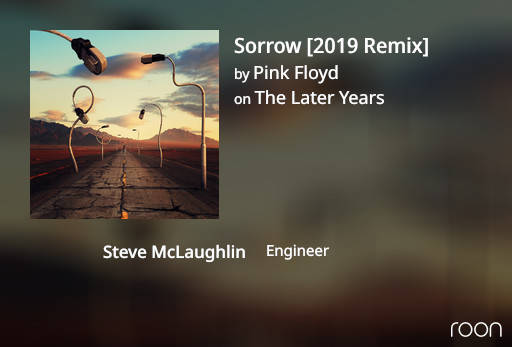
Very evocative music. Dreaming away.
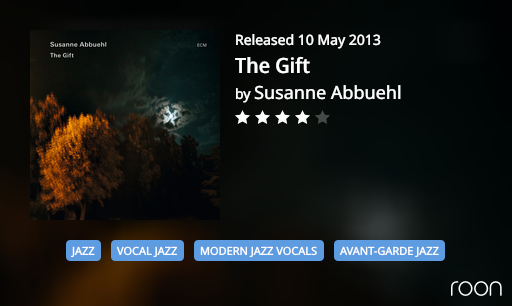
Early morning headphone listening, when low level on the speakers just isn’t what you want.
Started with this—for me, the moment I heard it—instant classic:

And Roon Radio took me to this that I did not know. Not a classic to my ears, but definitely interesting.
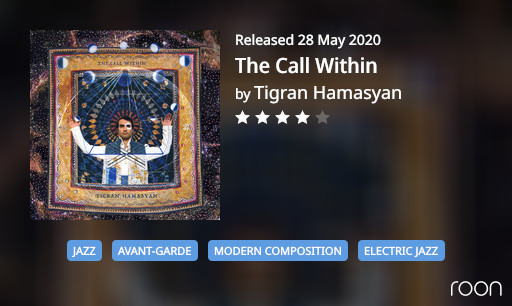
It’s a superb amp, especially with the Susvara.
OT, but did you try the Abyss AB-1266 Phi TC with it?